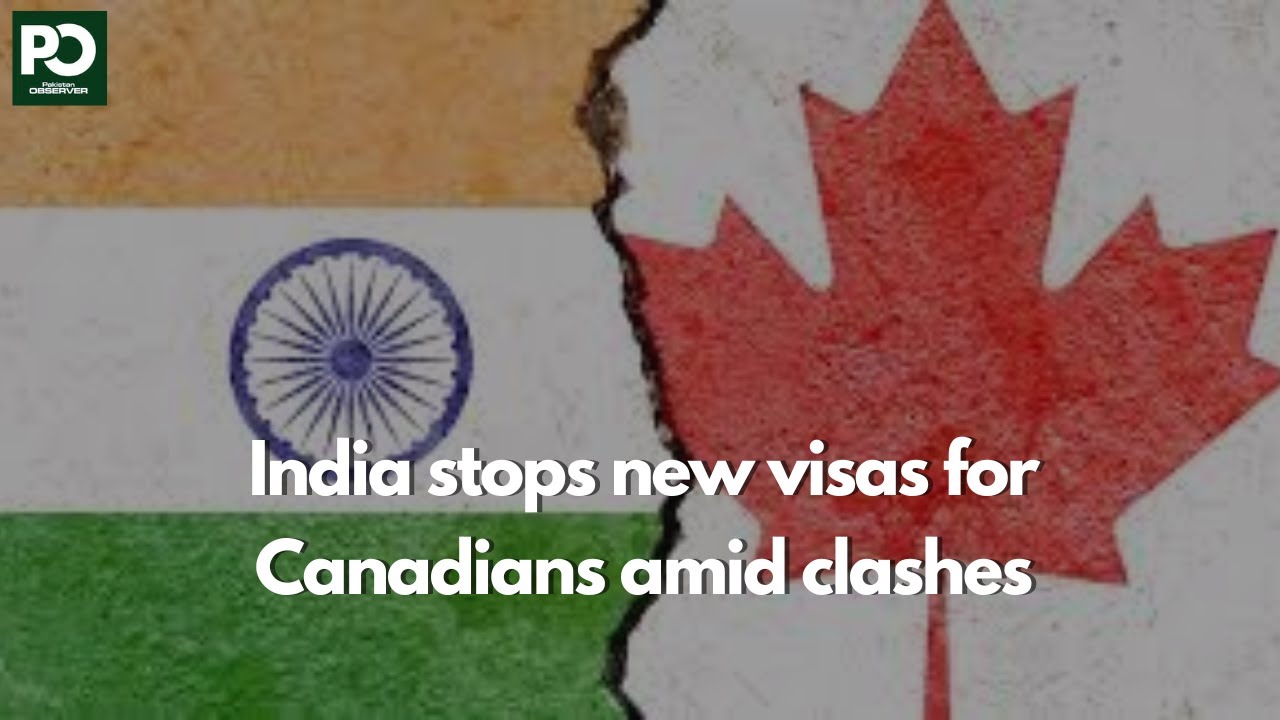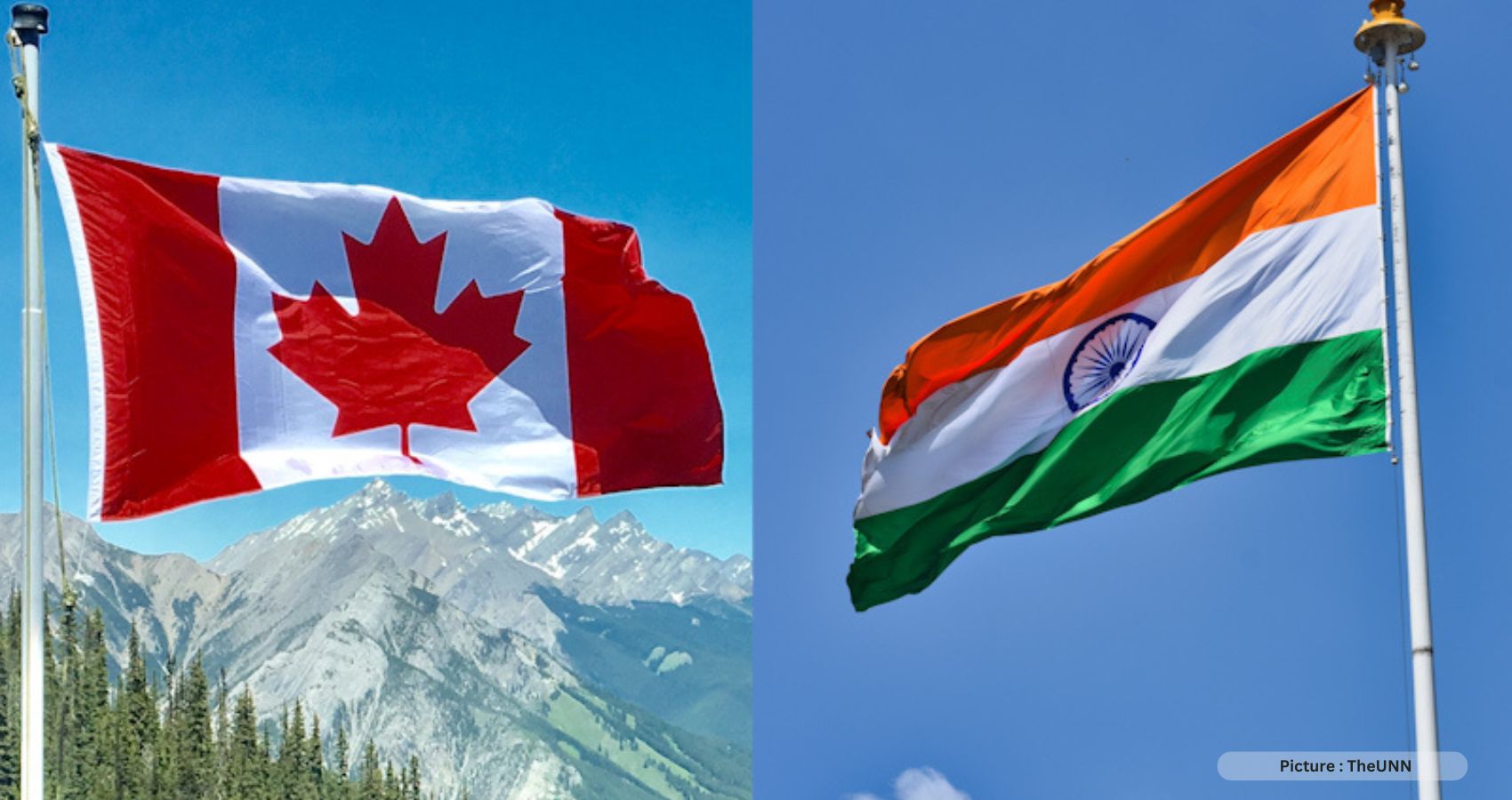India has taken a significant step in the ongoing dispute with Canada, suspending the issuance of new visas for Canadian citizens and calling for a reduction in Canada’s diplomatic presence within India. This development follows accusations made by Canadian Prime Minister Justin Trudeau, linking India to the murder of a Sikh separatist. The situation has led to heightened tensions between the two countries, resulting in diplomatic expulsions and travel advisories.
The Indian Foreign Ministry expressed its willingness to investigate specific information related to the allegations but noted that Canada has not shared any such information thus far. This move to suspend new visas for a Western country is an unprecedented action and represents a low point in India-Canada relations.
This decision came shortly after Canada’s high commission in India disclosed plans to “adjust” its staff presence due to threats received by some diplomats on social media platforms. The nature of these threats was not specified, and India has assured full security and support for foreign diplomats within its borders.
Indian Foreign Ministry spokesperson Arindam Bagchi cited “security threats” to staff at Indian consulates in Canada as the reason for suspending new visa issuances to Canadian citizens. However, the exact nature of these security threats was not detailed. In response, Canadian Public Safety Minister Dominic LeBlanc asserted that Canada is a safe country and stated that the security situation would be regularly reviewed.
Canada has been a significant source of foreign tourists to India, with 350,000 visitors in 2019. However, this number decreased due to the COVID-19 pandemic.
 The recent escalation in tensions began when Prime Minister Trudeau announced that Canada was investigating “credible allegations” of Indian government involvement in the murder of Hardeep Singh Nijjar in British Columbia in June. The Indian government vehemently denied any connection to the alleged murder, and Canadian officials have not provided specific reasons for their suspicions regarding India’s involvement.
The recent escalation in tensions began when Prime Minister Trudeau announced that Canada was investigating “credible allegations” of Indian government involvement in the murder of Hardeep Singh Nijjar in British Columbia in June. The Indian government vehemently denied any connection to the alleged murder, and Canadian officials have not provided specific reasons for their suspicions regarding India’s involvement.
Both countries have engaged in tit-for-tat expulsions of senior diplomats and issued reciprocal travel advisories as a result of this dispute. India has expressed its readiness to examine any specific information but has not received such information from Canada. The issue has also been discussed with key allies in intelligence sharing, including the Five Eyes alliance comprising the United States, Britain, Australia, and New Zealand, with these countries expressing concerns.
In response to questions regarding the impact of this dispute on global standing, Bagchi stated that Canada should be concerned about damage to its reputation rather than India. He pointed out India’s concerns regarding Canada’s reputation as a safe haven for terrorists, extremists, and organized crime and highlighted India’s previous requests for action against over 20 individuals.
India has not provided specific details of acts of terrorism carried out by Sikh separatists against its interests in Canada.
Canada has a significant Sikh population, with around 770,000 individuals identifying as Sikh in the 2021 census. Although the Sikh insurgency in Punjab in the 1980s and 1990s has largely dissipated in India, small groups in various countries, including Canada, continue to support the separatist demand for an independent Sikh state called Khalistan.
The dispute also poses a threat to trade ties, with talks on a proposed trade deal frozen in recent weeks. Canada is India’s 17th largest foreign investor, and Canadian portfolio investors have invested substantial sums in Indian financial markets. Additionally, India has been the largest source of international students in Canada since 2018, with their numbers rising by 47% in 2022 to nearly 320,000.
Industry estimates suggest that the Comprehensive Economic Partnership Agreement (CEPA) between Canada and India could potentially increase two-way trade by as much as $6.5 billion.











